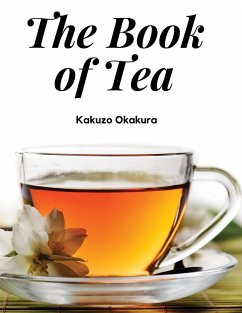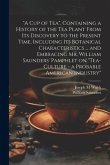"The Book of Tea" by Kakuzo Okakura is a classic work that explores the philosophy, aesthetics, and cultural significance of tea in Japanese society. Originally published in 1906, this book serves as a meditative reflection on the role of tea in both Japanese and broader Eastern cultures, as well as its influence on Western thought. The author, Kakuzo Okakura, discusses the historical origins of tea and its evolution into a central aspect of Japanese spirituality and artistic expression. He delves into the Zen Buddhist roots of tea culture, emphasizing its principles of simplicity, tranquility, and mindfulness. Throughout the book, Okakura explores various themes related to tea, such as the art of tea ceremony (chanoyu), the significance of tea utensils and architecture, and the appreciation of tea in literature and poetry. He also examines the profound influence of tea on Japanese aesthetics, including the concept of wabi-sabi, which celebrates imperfection and impermanence. Furthermore, "The Book of Tea" provides insights into the cultural exchange between East and West, particularly during the Meiji era when Japan was modernizing and engaging with Western ideas. Okakura discusses how tea served as a bridge between these two worlds, fostering understanding and appreciation for Japanese culture in the West. Overall, "The Book of Tea" is a poetic and philosophical exploration of tea as more than just a beverage but as a symbol of harmony, beauty, and spiritual enlightenment. It continues to be cherished by readers interested in Japanese culture, philosophy, and the art of living gracefully.






![The Tea Cyclopædia. Articles On Tea, Tea Science [&c.]. Compiled by the Ed. of the 'indian Tea Gazette' The Tea Cyclopædia. Articles On Tea, Tea Science [&c.]. Compiled by the Ed. of the 'indian Tea Gazette'](https://bilder.buecher.de/produkte/68/68939/68939419m.jpg)

